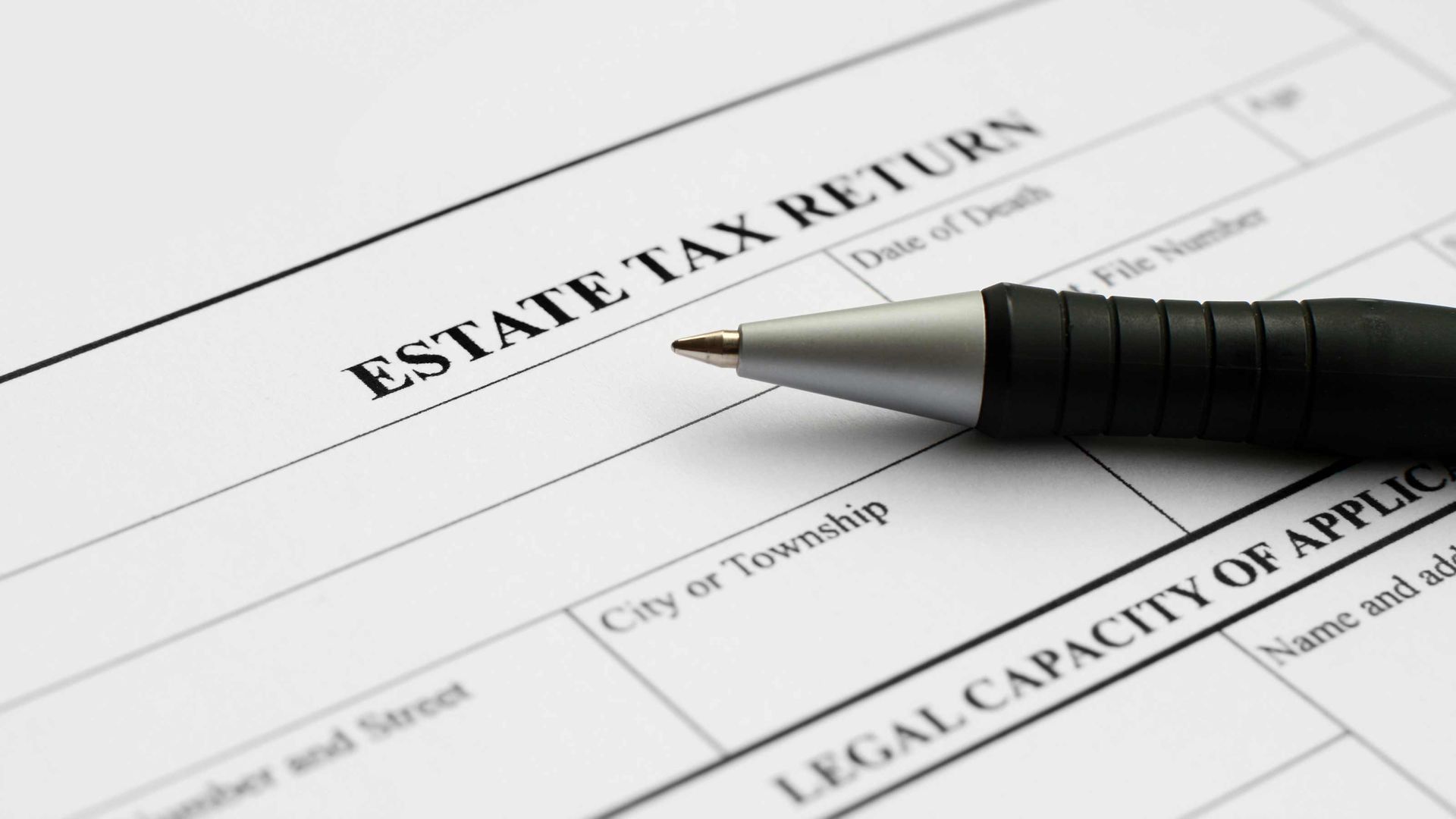Estate Tax Exemption Amount Goes Up for 2023
As the estate tax exemption amount increases, fewer estates are subject to the federal tax.


The federal estate tax exemption is going up again for 2023. The amount is adjusted each year for inflation, so that's not a surprise. But it's still a big deal when the new exemption is announced each year because there's a lot at stake for certain high-income Americans.
2023 Estate Tax Exemption
Generally, when you die, your estate is not subject to the federal estate tax if the value of your estate is less than the exemption amount. For people who pass away in 2023, the exemption amount will be $12.92 million (it's $12.06 million for 2022). For a married couple, that comes to a combined exemption of $25.84 million.
Estate Tax Rate
As you might guess, only a small percentage of Americans die with an estate worth $12.92 million or more. But for estates that do, the federal tax bill is pretty steep. Most of the estate's value is taxed at a 40% rate.

Sign up for Kiplinger’s Free E-Newsletters
Profit and prosper with the best of expert advice on investing, taxes, retirement, personal finance and more - straight to your e-mail.
Profit and prosper with the best of expert advice - straight to your e-mail.
As the table below shows, the first $1 million is taxed at lower rates – from 18% to 39%. That results in a total tax of $345,800 on the first $1 million, which is $54,200 less than what the tax would be if the entire estate were taxed at the top rate. However, once you get past the first $1 million, everything else is taxed at the 40% rate.
| Rate | Taxable Amount (Value of Estate Exceeding Exemption) |
| 18% | $0 to $10,000 |
| 20% | $10,001 to $20,000 |
| 22% | $20,001 to $40,000 |
| 24% | $40,001 to $60,000 |
| 26% | $60,001 to $80,000 |
| 28% | $80,001 to $100,000 |
| 30% | $100,001 to $150,000 |
| 32% | $150,001 to $250,000 |
| 34% | $250,001 to $500,000 |
| 37% | $500,001 to $750,000 |
| 39% | $750,001 to $1 million |
| 40% | Over $1 million |
Historical Estate Tax Exemption Amounts
Since the federal estate tax was reformed in 1976, the estate tax exemption has only gone up (see table below). In most cases, the increase is modest, such as a simple adjustment for inflation. However, at times, the exemption amount has jumped considerably. For example, it shot up from $675,000 to $1 million in 2002, from $1 million to $5 million in 2011, and from $5.49 million to $11.18 million in 2018.
But that pattern is scheduled to change. The 2018 estate tax examption increase is only temporary, so the base exemption amount is set to drop back down to $5 million (adjusted for inflation) in 2026.
| Period | Exemption Amount |
| 1977 (Quarters 1 and 2) | $30,000 |
| 1977 (Quarters 3 and 4) | $120,667 |
| 1978 | $134,000 |
| 1979 | $147,333 |
| 1980 | $161,563 |
| 1981 | $175,625 |
| 1982 | $225,000 |
| 1983 | $275,000 |
| 1984 | $325,000 |
| 1985 | $400,000 |
| 1986 | $500,000 |
| 1987 through 1997 | $600,000 |
| 1998 | $625,000 |
| 1999 | $650,000 |
| 2000 and 2001 | $675,000 |
| 2002 through 2010 | $1,000,000 |
| 2011 | $5,000,000 |
| 2012 | $5,120,000 |
| 2013 | $5,250,000 |
| 2014 | $5,340,000 |
| 2015 | $5,430,000 |
| 2016 | $5,450,000 |
| 2017 | $5,490,000 |
| 2018 | $11,180,000 |
| 2019 | $11,400,000 |
| 2020 | $11,580,000 |
| 2021 | $11,700,000 |
| 2022 | $12,060,000 |
| 2023 | $12,920,000 |
State Estate Taxes
Just because your estate isn't hit with the federal estate tax, that doesn't necessarily mean you're completely off the hook. Your estate might be subject to a state estate tax. Twelve states and the District of Columbia impose their own estate tax, and the state exemption amounts are often much lower than the federal estate tax exemption. For instance, the exemption amount in Massachusetts and Oregon is only $1 million.
Plus, six states levy an inheritance tax, which is paid directly by your heirs. (Maryland has both an estate tax and an inheritance tax!) So, just because your estate isn't worth millions of dollars, you children and grandchildren might end up with less in their pockets when you die than what you're expecting.
Related Content
Rocky Mengle was a Senior Tax Editor for Kiplinger from October 2018 to January 2023 with more than 20 years of experience covering federal and state tax developments. Before coming to Kiplinger, Rocky worked for Wolters Kluwer Tax & Accounting, and Kleinrock Publishing, where he provided breaking news and guidance for CPAs, tax attorneys, and other tax professionals. He has also been quoted as an expert by USA Today, Forbes, U.S. News & World Report, Reuters, Accounting Today, and other media outlets. Rocky holds a law degree from the University of Connecticut and a B.A. in History from Salisbury University.
-
 The Clock Is Ticking on Tax Cuts: Act Now to Avoid Missing Out
The Clock Is Ticking on Tax Cuts: Act Now to Avoid Missing OutEstate and gift tax exemptions are at an all-time high until the end of 2025. That may seem like a long way off, but setting things up could take longer than expected.
By Christopher F. Tate, J.D. Published
-
 Ready for a Career Checkup? Five Steps to Plan What’s Next
Ready for a Career Checkup? Five Steps to Plan What’s NextAsking yourself some pointed questions to figure out what you want and what you’re good at can bring more purpose and fulfillment to your professional life.
By Anne deBruin Sample, CEO Published
-
 Types of Income the IRS Doesn't Tax
Types of Income the IRS Doesn't TaxIncome Tax It may feel like the IRS taxes most of your hard-earned money, but some types of income are nontaxable.
By Kelley R. Taylor Last updated
-
 Why You’ll Still Pay Oklahoma Grocery Tax
Why You’ll Still Pay Oklahoma Grocery TaxState Tax Oklahoma is eliminating state grocery taxes, but that doesn’t mean groceries will be tax-free.
By Katelyn Washington Last updated
-
 Last-Minute Tax Savings Guide for 2023
Last-Minute Tax Savings Guide for 2023Tax Savings April 15 is weeks away, so it's not too late to save your 2023 taxes.
By Sandra Block Published
-
 Why You Should Care About Your 2026 Taxes Now
Why You Should Care About Your 2026 Taxes NowTax Planning It's not to early to prepare for the possibility that your taxes will go up in 2026.
By Sandra Block Published
-
 Capital Gains Tax Exclusion for Homeowners: What to Know
Capital Gains Tax Exclusion for Homeowners: What to KnowTax Breaks The IRS capital gains home sale exclusion can be a valuable tax-saving tool if you’re eligible.
By Kelley R. Taylor Last updated
-
 Save During Alabama’s Severe Weather Preparedness Tax Holiday
Save During Alabama’s Severe Weather Preparedness Tax HolidaySales Tax Holiday Certain items will be tax-free during the Alabama severe weather preparedness sales tax holiday this year, but there are specific rules to follow.
By Katelyn Washington Last updated
-
 Will Your IRS Refund Be Less This Year?
Will Your IRS Refund Be Less This Year?Tax Refunds Data show federal tax refunds are lower this year than last. Will you get less money back from the IRS this tax season?
By Katelyn Washington Last updated
-
 Four Things You Need to Know About Presidents Day and the IRS
Four Things You Need to Know About Presidents Day and the IRSTax Season The weeks surrounding Presidents Day are a particularly busy tax time for the IRS.
By Kelley R. Taylor Last updated









